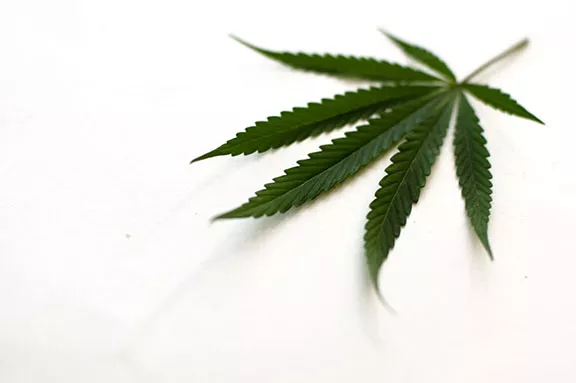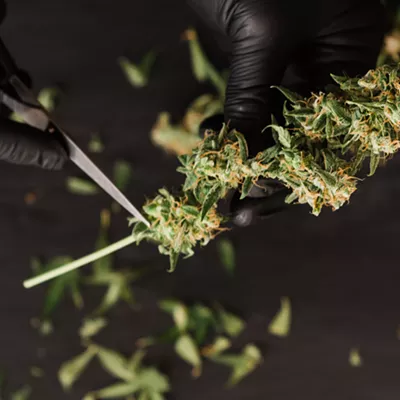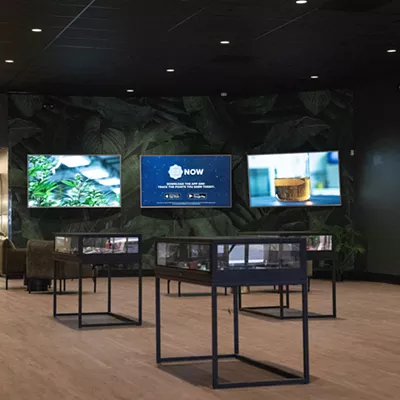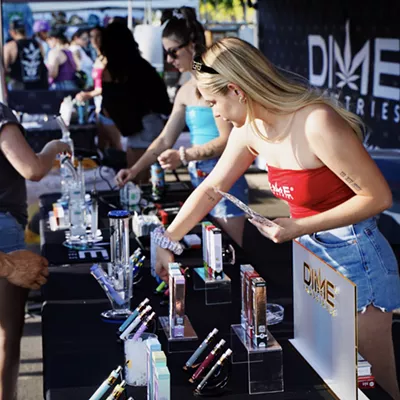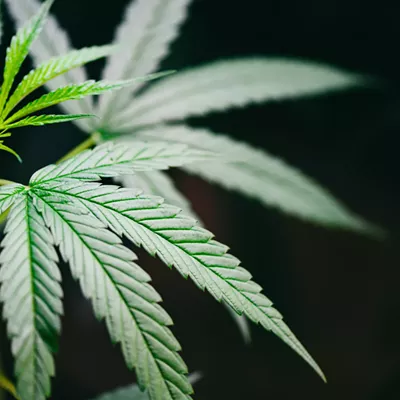In the following article, I hope to provide a casual introduction to my personal involvement and experience with medical marijuana so as to provide context as to where I stand on this issue on a personal level and conversely as a journalist.
Medical marijuana is a hot topic right now, and for good reason. In the United States, a generationally engrained stigma still points a judgmental eye at cannabis use, despite the proven medicinal applications of the plant.
It's 2019, and stigma around drug use is still barring people across the U.S. from receiving the medicine they need. The profit-driven pharmaceutical industry in the U.S. stands to gain nothing from the implementation of medical marijuana, and cannabis is being used by many as an alternative to opiates and other pharmaceutical drugs.
I plan to investigate and inform, but also provide much needed context in these columns. After all, I can't pretend I'm not an advocate for the implementation of medical marijuana.
I use cannabis recreationally, more like a cold beer at the end of a long work day than medicine. But I also recognize that thousands of medical marijuana patients in Arizona have experienced first-hand the medicinal applications of cannabis.
My mother is a qualified medical marijuana cardholder. She swears by the medicinal uses of cannabis and its application as a stand-in for opiates and other pharmaceuticals.
Yet, cannabis remains a Schedule 1 drug under federal law. Until federal legalization becomes a reality, the full medicinal potential of the plant simply can't be fully taken advantage of. In the meantime, cannabis sits on the sidelines as an alternative medicine, and dispensaries operate in opposition to federal law.
I have been detained overnight traveling from Canada to the United States for simply admitting to a Border Patrol agent that "of course I had smoked marijuana in my life... in my home state of Washington I had partaken just days before."
My cousin's joke that I'm not allowed to be in the driver's seat in such a situation again, for everyone's sake.
In high school, I was denied the position of student council vice-president in "a complete disregard of the democratic process," as we called it at the time. After being voted in by my classmates following a nerve-racking speech in the school auditorium, I was called to the principal's office. My girlfriend had tagged me in a post on Instagram. It was a photo of me hitting a bong on Christmas Day. I was depicted scantily clad with a Santa hat adorned crooked on my head.
On these grounds, I was disqualified from the race. Yet there was no further punishment because, well, there was no actual criminal offense. Stigma and perception of drug use is, come to find out, quite complicated. I believe that the movement away from these engrained stigmas begins with an open dialogue about drug use and safety; one based in science, free from persecution and judgment.
The war on drugs—the broader underlying issue—is what began the stigmas and faulty rhetoric surrounding cannabis use in the United States.
Tracing back to the Nixon administration's creation of the Drug Enforcement Administration, the harsh Rockefeller Drug Laws of the 1970s and the criminalization of LSD in reaction to the counterculture of the 1960s—one of the most stigmatized societal movements and substances in history.
You won't find politicians talking about the applications of LSD assisted psychotherapy— not yet, at least. Change doesn't happen overnight.
The 2020 Democratic presidential debate brought up some of the most important issues surrounding marijuana and the war on drugs. Candidates discussed the pharmaceutical industry's hand in the opiate crisis and the mass imprisonment of people for low-level drug offenses.
"It's the largest prison population on the planet," Beto O'Rourke (D-TX) said. "Many are there for non-violent drug crimes, including possession of marijuana at a time that half of the states have legalized it or decriminalized it."
Since diving into the local cannabis industry here in Tucson, I've come to realize that there is no shortage of local news to investigate or larger issues to analyze. So as a beginning to this investigation I'm asking you, our readers, what you think the most pressing issues surrounding medical marijuana are, and what you would like to see covered in this column.
You can submit your input online at tucsonweekly.com in the comments section of this article.
Based on this polling information, in the coming months I will dig deep into these issues, uncovering how the government, private industry and public are affected by cannabis. ■

